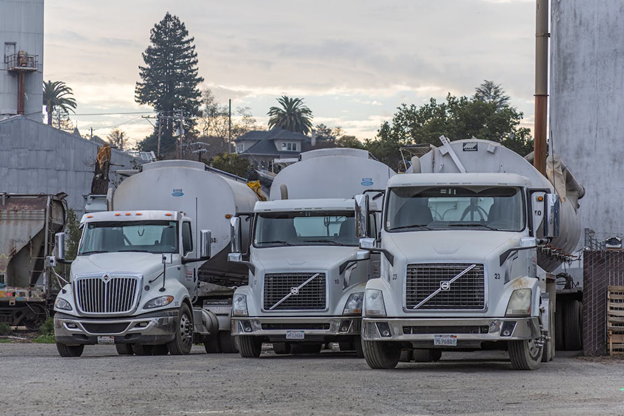Diesel emissions are one of the biggest culprits of environmental and emission hazards worldwide. It jeopardizes human health and makes the environment inhabitable by damaging the ozone layers. But all these do not limit its need to run heavy-duty pickup trucks and vehicles. Therefore, automotive industries have introduced diesel exhaust fluids to reduce emissions and improve air quality.
Anyone running a diesel vehicle in North America, Europe, or anywhere in the world is legally obligated to use DEF to reduce harmful gas emissions. Since eco-friendly fluids are still relatively new, people must be well-versed in their application. Users can easily find many producers of diesel exhaust fluid in these countries.
You can find much conflicting information about DEFs at different marketplaces and whether they are qualified according to federal guidelines. This blog will assist you in learning all about DEFs and why they are essential to help the environment.
What is DEF (Diesel Exhaust Fluid)?
Chemically, DEF is a mixture of synthetic urea and de-ionized water used in diesel engines’ Selective Catalytic Reduction (SCR) systems. This liquid mixture is injected into the exhaust stream through a controlled dosing module to let it react and neutralize with NOx molecules. This harmful emission converts them to nitrogen and water.
What Is SCR, and How Does DEF Help It in Working?
SCR, or selective catalytic reduction, is a fuel and cost-efficient technology to control diesel engine emissions. Light passenger cars and trucks are often considered high quality based on their compliance with the emission and fuel efficiency guidelines with no compromise on their performance. It is one of the only emission technologies that can reduce diesel emissions to almost zero and save fuel up to 3-5%. That makes it an excellent technology for both the environment and the business.
SCR allows nitrogen oxide reductions to occur in an oxidizing atmosphere. It is a selective method because it uses ammonia as a reductant to reduce the NOx levels in a catalyst system. The pollutants, mainly NOx, are converted into common molecules we breathe in the air: water, nitrogen, and a small amount of carbon dioxide.
In all this process, the primary compound that helps reduce pollutants into less harmful substances is automotive-grade urea—also known as DEF, which quickly hydrolyzes to introduce oxidizing ammonia in the exhaust stream.
Importance of DEF – Diesel Exhaust Fluid
It is an essential ingredient to initiate the chemical reaction keeping the dangerous gasses produced in the engine from mingling in the environment. Using this fuel additive requires a separate tank; spending extra money on it may seem cumbersome, but keeping your trucks, buses, and other heavy machinery running smoothly on the road needs DEF. All vehicles manufactured after 2010 must be equipped with SCR technology requiring DEF. Newer vehicles are now programmed to inject DEF into their exhaust stream to make the emissions less damaging. If a car runs out of this fluid, the engine performance can reduce and decrease a vehicle’s efficiency.
The usual formulation of DEF consists of 67.5% de-ionized water and 32.5% urea, also known as carbamide. It is a naturally occurring compound found in mammal urine. Urea binds certain chemicals, such as nitrogen, in diesel exhaust.
As emission standards are increasing day by day, the use of DEF is broader than just diesel trucks and heavy-duty vehicles. It also has extensive application in other types of machinery, such as marine and farm equipment.
Is DEF Dangerous?
It is neither combustible nor volatile nor a pollutant. However, if it is not managed correctly or polluted profusely, it can severely affect engine emission solutions, which utilize the selective catalytic reduction technology. In DEF, the urea used is of automotive or pharmaceutical grade. In this quality grade, there is a shallow concentration of impurities that is damaging to the high-end exhaust fume catalyst over time. The mixture also uses analytical quality water, i.e., purified, distilled, and de-ionized using ultrafiltration and reverse osmosis.
DEF in SCR has been a helping hand in extending the service life and putting off the acquisition of equipment. Any mechanical technology above 75 hp nowadays requires a DEF. Managing your vehicle’s DEF should not be considered a burden, given that appropriate handling knowledge about the technology can reduce the risks associated with DEF. Every vehicle owner should buy diesel exhaust fluid from an accredited supplier with transparent supply chain management and no risks associated with high-horsepower heavy equipment.
Takeaway
As the world becomes more climate-conscious, the demand for DEF is increasing daily. And after implementing the Diesel Emission Reduction Act (DERA) in 2010, diesel engines are required by law to accommodate all emission restrictions. Off-road vehicles, generators, and other equipment consumers also need DEF. American MFG is one of the high-end producers of diesel exhaust fluid qualified to work with every SCR technology-equipped diesel engine. Get the best quality DEF at an affordable price at American MFG.

